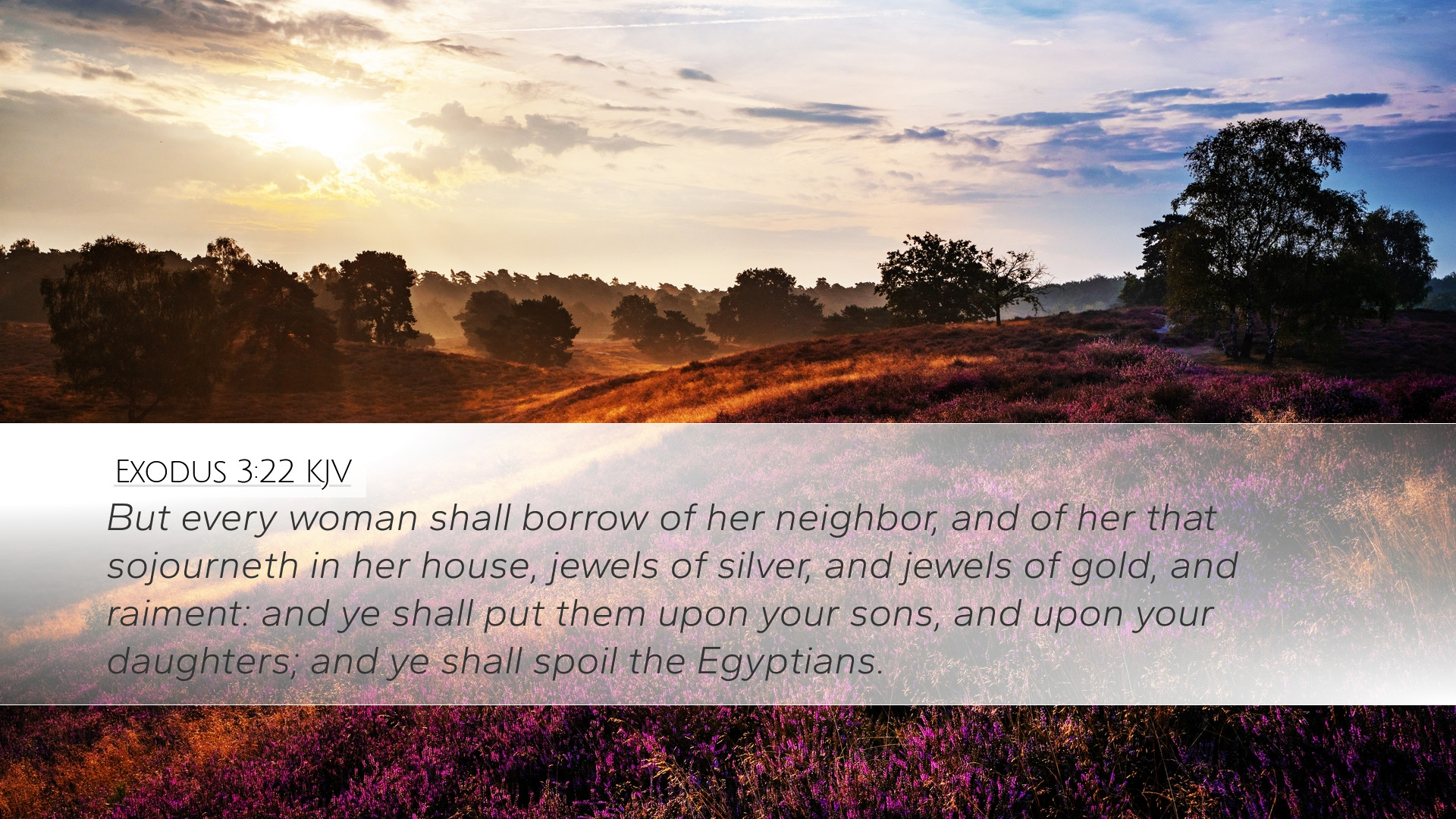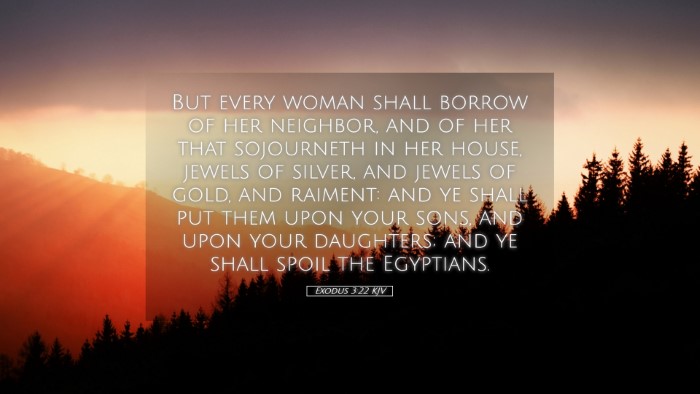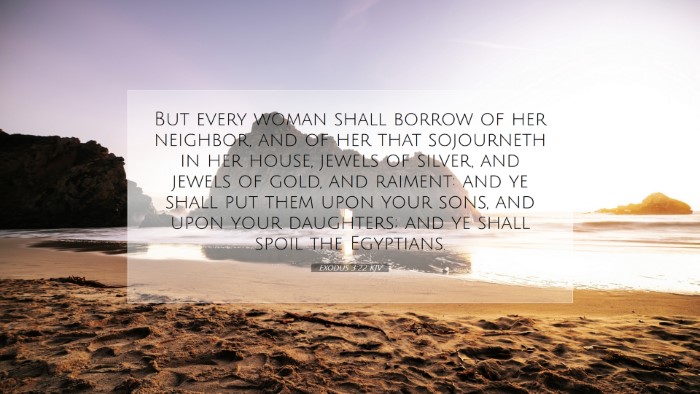Exodus 3:22 - Summary and Commentary
Exodus 3:22 states: "But every woman shall borrow of her neighbor, and of her that sojourneth in her house, jewels of silver, and jewels of gold, and raiment: and ye shall put them upon your sons, and upon your daughters; and ye shall spoil the Egyptians."
Introduction
This verse is pivotal in the narrative of the Exodus, as it prepares the Israelites for their departure from Egypt. It reflects on the themes of divine provision, judgement upon the oppressors, and the transfer of wealth that occurs during the liberation of God's people.
The Context of Exodus 3
In the broader context of Exodus 3, God appears to Moses in the burning bush and commissions him to deliver the Israelites from slavery. God's concern for His people and His covenant promises play a crucial role throughout this chapter, culminating in the assurance of their eventual release from Egypt.
Commentary Insights
1. Divine Command and Human Response
Matthew Henry emphasizes that this command to borrow jewels is reflective of God's providential care for His people. The act of borrowing, however, is not simply a physical act; it is inspired by divine initiative. Henry notes that the term “borrow” implies that the Israelites were not to take these items without the hope of return, but rather as a divinely sanctioned act of claiming what was owed to them after years of oppression.
2. The Significance of 'Jewels' and 'Raiment'
Albert Barnes points out the symbolic significance of the "jewels of silver, and jewels of gold." These items represent not only material wealth but also the glory that God intends for His people. The wealth taken from the Egyptians serves as a stark contrast to the impoverished state of the Israelites in bondage. Moreover, raiment signifies God's provision and the dignity He restores to His people during their transition from slavery to freedom.
3. Spoiling the Egyptians
Adam Clarke elaborates on the phrase "ye shall spoil the Egyptians," which indicates a reversal of fortunes. Clarke argues that the systemic exploitation of the Israelites by the Egyptians does not go unanswered; instead, God orchestrates a scenario where the oppressors are made to contribute to the liberation of those they oppressed. This aligns with the broader biblical theme wherein divine justice is served as God acts against those who mistreat His chosen people.
Theological Implications
The act of borrowing, as commanded in this verse, prompts significant theological reflection. It displays God’s unwavering commitment to fulfilling His covenant promises and ensuring that His people are both liberated and provided for materially. The wealth that the Israelites gather is not only for their sustenance but serves a larger purpose in the establishment of a new nation characterized by covenant faithfulness to God.
Application for Modern Believers
This verse offers profound application for contemporary believers. It encourages a view of God as both the liberator and provider, assuring that He not only rescues His people from spiritual and physical bondage but also enriches them for the journey ahead. This perspective can energize Christian witness and community engagement, inviting believers to reflect upon ways in which God might be enabling their testimony through the reversal of their own circumstances.
Conclusion
In summary, Exodus 3:22 encapsulates a moment of divine foresight and human preparation. The insights drawn from Matthew Henry, Albert Barnes, and Adam Clarke underscore the richness of this verse, revealing layers of meaning that stretch beyond the historical context into profound theological truths. For pastors, students, theologians, and Bible scholars, this passage invites a deep reflection on God’s justice and provision, encouraging an active response in faith and community.


